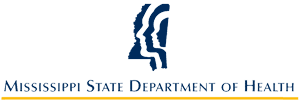 JACKSON, Miss. — The Mississippi State Department of Health (MSDH) continues to monitor the path of Hurricane Ida. Significant power outages, home repairs, and flooding could create dangerous and potentially life-threatening situations. MSDH residents should take the following precautions: Food and Water Safety If your power is out, there are several food and water safety tips to follow to ensure what you eat and drink is safe for consumption:
Carbon Monoxide MSDH recommends the following precautions to help prevent potentially fatal carbon monoxide (CO) poisoning. Do not burn charcoal or gas grills inside a house, garage, vehicle, tent, or fireplace. Do not use gas-powered generators or pressure washers in enclosed spaces including indoors or in the garage. If you suspect you are experiencing any symptoms of CO poisoning, such as dizziness, headache or shortness of breath, open doors and windows, turn off gas appliances and go outside. In cases of severe CO poisoning, call 911 emergency services or the Mississippi Poison Control Center at 1-800-222-1222. Personal Protection When cleaning up storm-damaged areas, be sure to wear protective clothing and sturdy shoes to prevent cuts and scratches from debris. Do not let children play in floodwater and discard any items that come into contact with floodwater. Any food (including food in plastic or glass), medicines, cosmetics or bottled water that has come in contact with floodwater should be discarded. If in doubt, throw it out. Intact cans may be thoroughly disinfected with one-quarter cup of bleach to one gallon of water, and then used. Around Your Home When cleaning up debris around your home, be sure ladders are secure before climbing on them to clean the roof and gutters. If you plan to use a chainsaw to clear debris, be sure to operate the machine according to the instructions. If injury occurs, call 9-1-1 or seek immediate medical help. Flooding can cause mold to grow inside your home, which can cause allergic reactions, asthma episodes, infections, and other respiratory problems. MSDH does not handle mold removal or abatement. You will need to call a private contractor for further assistance. Tetanus Information: Tetanus vaccination is recommended if it's been 10 years or more since your last tetanus vaccination (Tdap is the recommended vaccine). In the event of a puncture wound or wound contaminated with floodwater, individuals should consult a healthcare provider. Disinfecting Private Water Wells Homeowners impacted by flooding who do not receive their water supply from a public water system regulated by the MSDH should have their private well inspected, disinfected and sampled in order to protect their health. For step-by-step instructions on disinfecting your private water well, visit the MSDH website at HealthyMS.com/wells. Vibrio vulnificus bacteria naturally live in certain coastal waters and are present in higher concentrations between May and October when water temperatures are warmer. Vibrio bacteria naturally live in certain coastal waters and are present in higher concentrations between May and October when water temperatures are warmer. Vibrio vulnificus can cause life-threatening wound infections. Many people with Vibrio vulnificus infection require intensive care or limb amputations, and about 1 in 5 people with this infection die, sometimes within a day or two of becoming ill Anyone can get a Vibrio wound infection, but some individuals are more likely to get infection and have severe complications:
How can I prevent a Vibrio wound infection if I have a wound? You can reduce your chance of getting a Vibrio wound infection by following these tips:
Seek medical attention immediately if you develop signs and symptoms of Vibrio infection, which can include:
Mosquitoes Flooding can result in excessive breeding of mosquitoes, resulting in the possibility of diseases such as West Nile virus being carried by the insects. Protective measures include:
For more information on safety after a storm, visit HealthyMS.com/afterstorm. Follow MSDH by e-mail and social media at HealthyMS.com/connect. Press Contact: MSDH Office of Communications, (601) 576-7667 |
Sunday, August 29, 2021
MSDH News: Health Department Urges Residents to Take Precautions After Hurricane Ida
Subscribe to:
Post Comments (Atom)


No comments:
Post a Comment